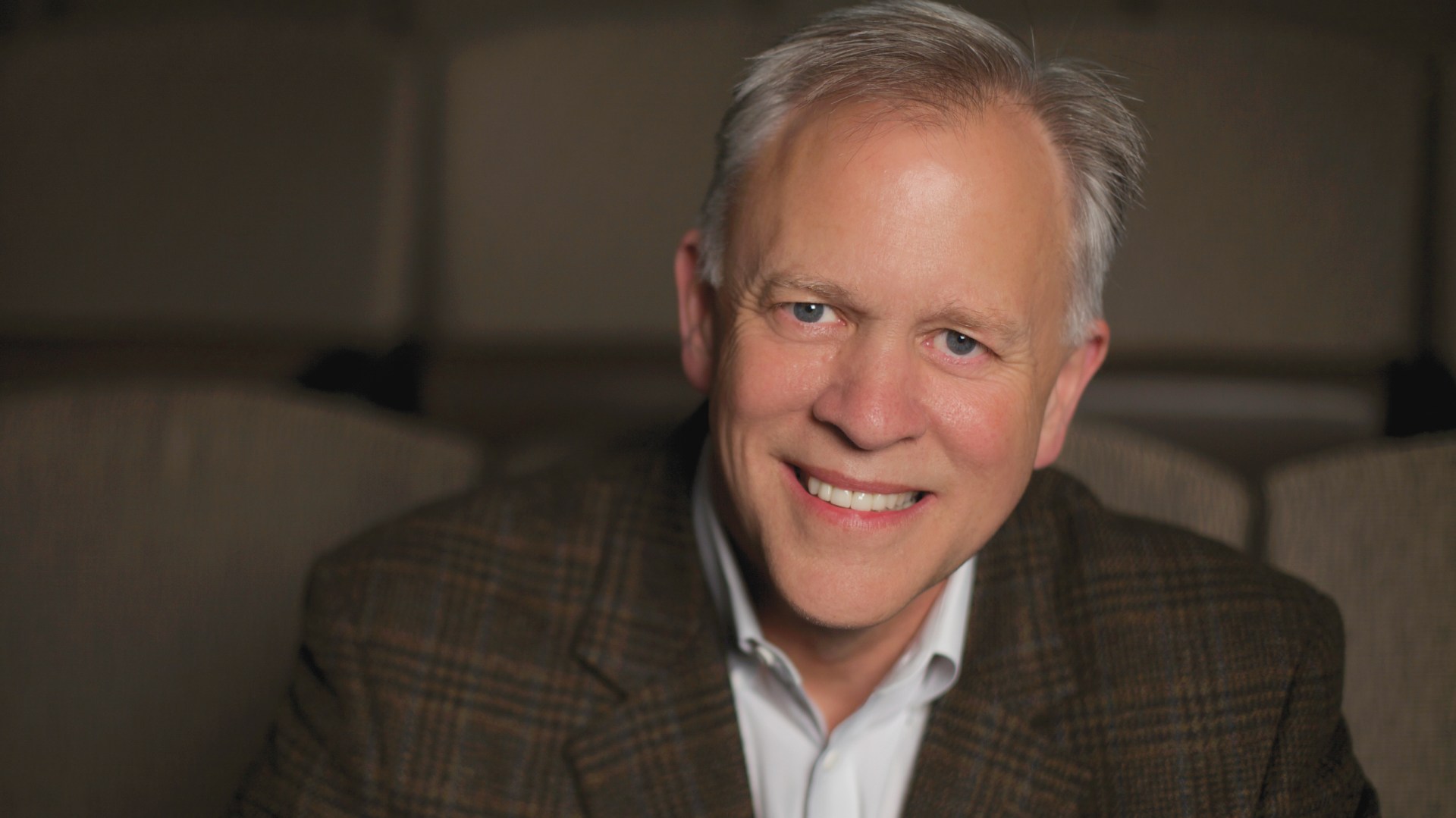Following Jesus has never been an easy task. All the same, from the time of the disciples until today, Christians have been called to strap on their sandals, so to speak, and walk the road their Lord calls them down. While the basic New Testament call remains the same, though, each age places unique speed-bumps and detours along the path of discipleship. In Called: The Crisis and Promise of Following Jesus Today (InterVarsity Press) Mark Labberton, president of Fuller Theological Seminary, gives a bracing assessment of the challenges facing the North American church, as well as a hopeful invitation to trust the promises of God as we respond to the call of Jesus in the world. Derek Rishmawy, a minister to students and young adults in California, spoke with Labberton about that vision.
You talk about the crisis and the promise of following Jesus. In a nutshell, what’s the crisis?
The crisis we’re facing is that many people outside and inside the church don’t understand what it’s supposed to be about. It has become encrusted with so many cultural, historical, political, economic forms. As these get thicker and thicker, they distance us from the core affirmation of living as disciples of Jesus. If you look at the New Testament and ask “What is the church?” I think the primary answer is: people living their lives as an act of worship and response to Jesus Christ and seeking to live as daily disciples in community and for the sake of their world. The crisis is that Christians inside the church don’t seem to view this way of life as necessary. This leaves outsiders puzzled about the purpose of the church, because so little of it seems related to Jesus.
And what’s the promise?
The most illuminating moment of the “promise,” in cultural terms, is the shock of Pope Francis. The Catholic Church has been embroiled in scandal for many years. It has been seen as bureaucratic and unresponsive. Then, all of a sudden, there appears this authentic, living disciple. Here is someone who seems to live out of this deep spirit of humility—a Jesus follower who wants a life rooted in simple action.
Across the world, people have looked at his example—economically, politically, socially—and said, “That’s what the church is about?” And Francis is shocked by their shock: “This is what Christians do.” To live with integrity in a way that’s counterintuitive to the wider culture—that’s the promise of following Jesus today.
You talk about the church recognizing the “gift of exile” and abandoning a “Promised Land” form of spirituality. What’s at the heart of those two spiritual visions?
My assumption is that a great deal of American life is part of Promised-Land vision—a version of the American dream that just has Christian language wrapped around it. It’s not fundamentally a different dream defined by the kingdom of God. Rather, it’s a dream propelled by the industry, hard work, and conscientious devotion that’s part of the “Protestant work ethic.” It’s a Protestantism that prays for blessing in the form of a Promised-Land life.
What do I mean by the “gift of exile”? Now that Christendom—the forms and structures of a Christianly-oriented culture—has fallen away, the church is having to ask itself, “Who are we? What are we really about? What defines us and distinguishes us?” At first, the condition of exile shocks and disorients us, just as it did Israel, with its possible horror and tragedy. At the same time, there is an opportunity to say, “If God is still God, and we are still called to be authentic disciples, what does that look like in a situation where the support structures have fallen away?” Exile then becomes an opportunity to be re-attuned to the one we’re claiming is the Savior and Lord of our lives, and that calls for a new way of living.
How can the church avoid retreat in the face of exile?
Both the instincts of retreat and the instincts of assimilation are quite common. These have been the basic patterns of response from the opening pages of the Bible until today. The question becomes, “How do I recognize where assimilation is possible and where it isn’t?”
The Book of Daniel is instructive here. What you find in the opening chapters is that the Babylonians’ plan is to teach Daniel and his friends the language, the customs, the culture, and the stories of their new place of residence. The Babylonians want to change their names, their food, and everything about their habits. Fascinatingly, it’s clear from Scripture that they cooperate just about completely. They stand inside Nebuchadnezzar’s house. They do work in support of his life. They are industrious, hardworking, contributing people. It’s very much a Jeremiah 29 vision of seeking the welfare of their place of exile. They are contributing to the welfare of the enemy.
And yet, they have decided that at certain critical points they will not compromise. The most shocking example is their refusal to bow down to the golden statue that Nebuchadnezzar has set up. They experience the freedom of standing in front of Nebuchadnezzar’s rage and saying, “We have no need to give you a defense of us. God may deliver us, or he may not, but we will not bow down and worship.” That is an example of standing with faithful courage in a context of exile, and it’s the kind of courage we need in various places. But notice that this isn’t the norm. Daniel is not an example of uncompromising rejection of a hostile culture.
As the church is in exile, in some moments it’s creating culture, in others it’s standing against the culture, and in still others it’s participating in culture for the sake of the common good. All of those stances need to be part of the Christian repertoire. Retreating would be easy, and ultimately inadequate.
As you think about our call to be salt and light, what is one area that the North American church urgently needs to address?
Given the economic, racial, ethnic disparity in the country, I think the people of God are called to be distinctive in that we transcend these divisions. We are meant to be a peculiar community in terms of our character and our associations. The fact that we are meant to be a community of Jew and Gentile—I would broaden it to say all nations—suggests that the church is meant to have a different set of associations than the average person would. We must be bound together in our hearts and minds, not simply because we are like one another, but because we have found a common home in God’s love in Christ.
I wish it could be said of the church that this is who we are. But in actual fact, many if not most of our congregations are not examples of this. We may affirm a common faith, but that affirmation that “Jesus is Lord” is not drawing us into a new web of social relations, as it’s meant to do. Our confession ought to mean not just that he’s my Lord, but that he is Lord, and that we are all under his reign. Out of that confession I am invited to reconsider my power and the powerlessness of my neighbor, and invite him into a new and different community—a community of people who might not otherwise associate with one another.
The call of Jesus and can seem big, unwieldy, and overwhelming. You talk about finding our call within the ordinary everydayness of life. What’s the key first step to answering the call of Jesus?
This is why I think it’s important to never find ourselves not reading a Gospel. That has been one of my practices for many years. I find that it stockpiles my imagination with the unexpectedness of Jesus’ encounters with people, his humility, his compassion. That starts breeding a different set of images of what life is to be like.
I then bring that with me everywhere, from the most casual encounters to the most formal, important ones. So getting ourselves rooted in the Gospels is the clearest way back into the fundamentals of following Jesus. Yes, following Jesus is a comprehensive, cosmic mission that involves the reconsideration of everything. But it also always includes the question, “What will I do with the person sitting next to me today? What will I do with my neighbor?”
You wrote this book in the midst of taking the helm of Fuller Seminary. How do you see it coming out of your call to this position?
Having just taken the mantle of being president, obviously I’ve spent a lot of time thinking about what the next season of Fuller Seminary will be about. We believe the core of our work is to help people discern and grow in their understanding of God’s call in their life, and then practice it—whatever expression that may take. In typical terms, most people that come to seminary are looking to go into some sort of formal Christian service. We find that roughly half of our students are seeking to integrate their faith into all kinds of public service, arts, media, business, and so forth.
We want to help people understand the core of their call in Christ. And to discern the particular gifts, abilities, inclinations, and curiosities that may lead them in some sort of work-related direction, which becomes a further manifestation of their call. That’s the central work of Fuller. This book is simply trying to describe that call, which is not solely reserved for clergy, but is directed toward the people of God in all the places they will go to serve and play.










